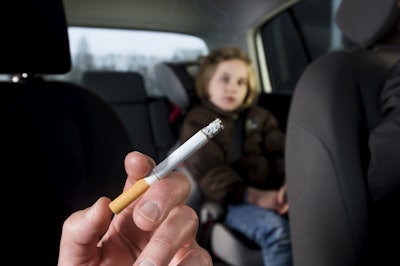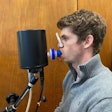
A father who was exposed to passive smoking in childhood not only has a higher risk of lung problems like COPD but also has potential to pass those risks along to his children.
A study published in the journal, Thorax, highlights the intergenerational harms of smoking. According to a news release, the researchers said there is increasing focus on COPD factors that are passed along from generation to generation.
The study, “Paternal Prepubertal Passive Smoke Exposure is Related to Impaired Lung Function Trajectories from Childhood to Middle Age in Their Offspring,” looked at 890 father-offspring pairs from the Tasmanian Longitudinal Health Study — the world’s largest and longest-running study on respiratory health.
The analysis of those pairs included data on the father’s passive smoke exposure before puberty and lung function data on their children up to the age of 53. More than two-thirds of the fathers and more than half of the children had been exposed to passive smoking during their childhoods. About half of the children (49%) had a history of active smoking by middle age, and a little more than 5% had developed COPD by this point.
After adjusting for potentially influential factors, including a father’s age and lifetime history of asthma/wheeze, researchers observed the following results:
Passive smoke exposure as a child was associated with 56% higher odds of below average of forced expiratory volume in one second (FEV1) across the lifespan of his children.
Childhood passive smoke exposure doubles the odds of early low-rapid decline in FEV1 in his children, which was statistically significant.
Paternal exposure to passive smoking as a child doubles the risk of COPD by the age of 53 in his children, which was not statistically significant.
Previously published research has shown that passive smoking during a father’s childhood may be linked to a heightened risk of asthma by the time they are seven years old. However, researchers said it is not clear if compromised lung function may extend into middle age and beyond.
Because this was an observational study, the researchers said they could not draw firm conclusions about cause and effect. Despite this, they said the period before puberty is especially critical for boys, when exposure to harmful substances may change gene expression and modify repair mechanisms which may then become heritable.
“Our findings are novel as this is the first study to investigate and provide evidence for an adverse association of paternal prepubertal passive smoke exposure, rather than just active smoking, on impaired lung function of offspring by middle age,” they wrote. “These findings suggest that smoking may adversely affect lung function not only in smokers but also in their children and grandchildren.”






















